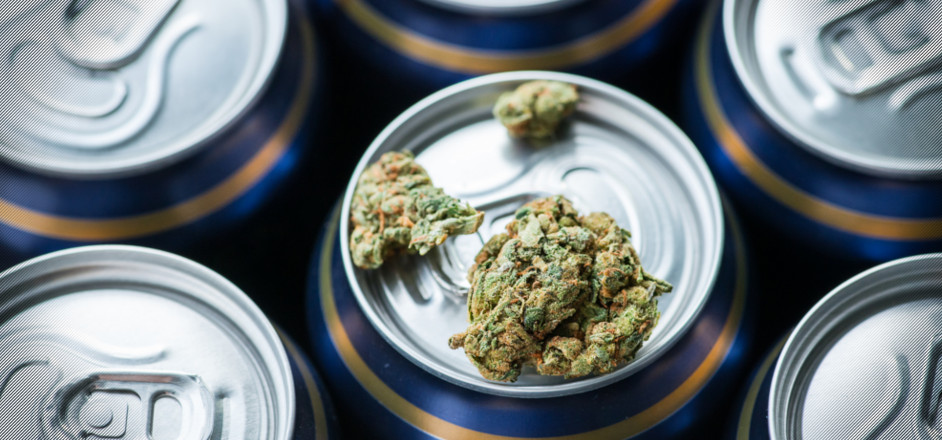Beer and weed.
Coloradans have always brewed hops and smoked cannabis through the decades — with roughly equal enthusiasm.
And when writing legislation to allow weed, most thought the law should treat both the same.
So in 2012, Amendment 64 aimed to "Regulate Marijuana Like Alcohol." It passed.
But six years later, cannabis is not regulated like alcohol. Pot is still booze's ugly stepsister.
It's taxed higher, it's screened for on drug tests, and it's banned from parks.
Then there's Denver's so-called social use initiative, passed in 2016. The language was a bit vague, but it was clear that voters wanted to create movie theaters or paint studios or arcades where you'd settle into a beanbag chair for a toke. You know, the way you'd slide up to the bar for a Coors.
In other words:
Cannabis social use clubs equals alcohol bars.
But one-and-a-half years later, it's stymied. There's only one social use joint, aptly named The Joint, and it's tucked near a noisy highway like a junked car.
The reason is that the city of Denver went antisocial when it imposed insane restrictions on social use places, on indoor air quality, alcohol and more. With these rules, few business even applied. Others got shot down.
The most asphyxiating rule says social use clubs have to be 1,000 from any kid-centric spot, like a school, daycare or rec center.
Bars, check it, only have to be 500 feet from a school.
Marijuana ≠ alcohol.
But folks can dream, can't they?
Cindy Sovine is one of them. She wanted to bathe clients in both marijuana smoke and essential oils, and open the most sophisticated social use space in the world: she planned to call it Utopia.
Sovine is a lobbyist for the cannabis industry and advocate for medical marijuana patients. Recently, she was sitting on the patio outside a coffee shop in Denver, sipping a Jarritos Mexican soda. A Republican who grew up on Colorado's Eastern Plains, she was wearing a business-y blouse with her hair in a tight bun. Martha Stewart Living, in the flesh.
"People always say, 'You do not look like somebody who smokes pot,'" she said.
Despite her demure outfit, she successfully fought for something arguably radical: Jack's Law, which allows parents treat their kids with medical marijuana on school grounds. The law was named after Jack Splitt, a 15-year-old who used cannabis to treat the awful pain of cerebral palsy.
For a social use spa, Cindy had everything: a building, masseuses, support from local neighborhood associations, and her own bone-deep belief in the healing power of cannabis. (She says it shrunk her dad's tumor.)
But the issue holding her up was that pesky 1,000 foot rule.
Most of Sovine's building, an old mansion right by the capitol, is in one of the few tiny slivers of land not within 1,000 feet of a school.
But one corner of the property was slightly too close, 980 feet from a school.
Sovine pressed on. She won the director of the school over to her side. He wrote a letter asking the city to "waive or otherwise exempt [the spa] from this proximity restriction."
But the city just handed down its decision: "No."
It said, basically, 980 feet does not equal 1,000 feet.
Marijuana regulation is not alcohol regulation.
Sovine told 9News that that Denver is "hiding behind regulations … that were not part of the original ballot measure."
She has a point. Harsh restrictions mean Denver isn't honoring voters. It's not pioneering cannabis-friendly businesses. It's not living up to Amendment 64.
Denverites are bold, though. This week, a third business dreamed the impossible dream.
Denver Vape and Play applied to be the second social use establishment in the city: a weed-friendly arcade on South Broadway near Evans.
If they opened a bar, there'd be bars right next to it. But on social use, they're almost alone.
Alcohol is everywhere.
Cannabis is still on the fringe.




Leave a Reply